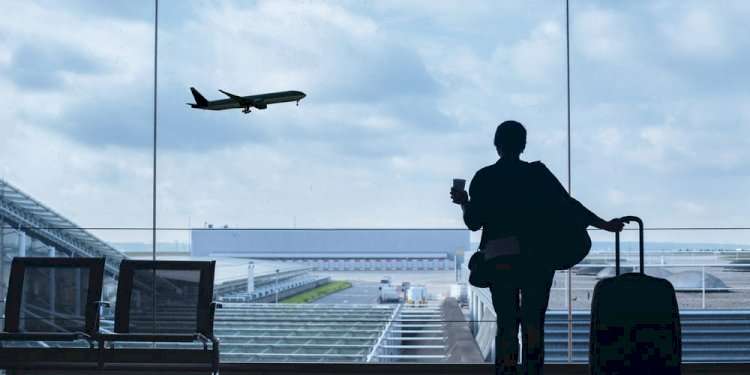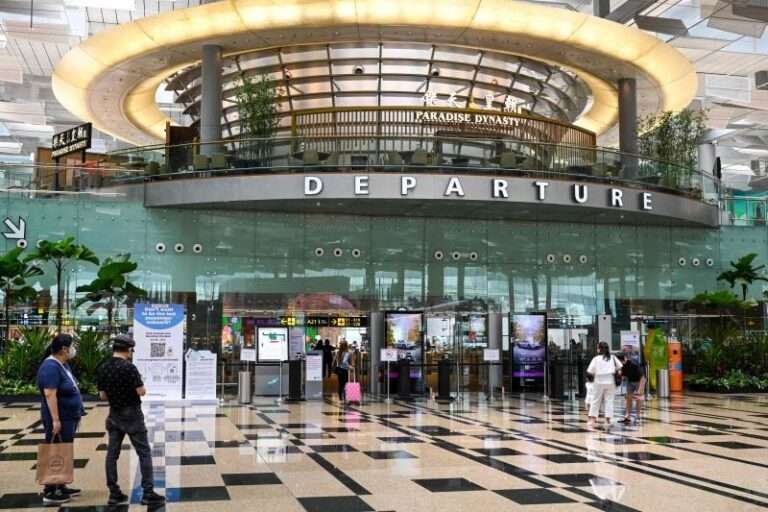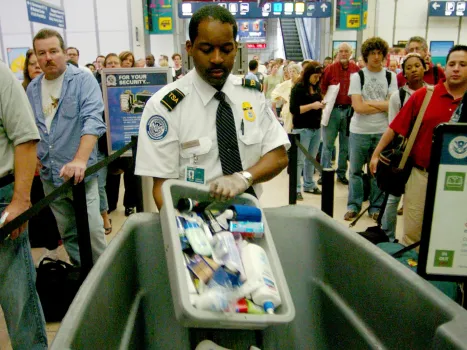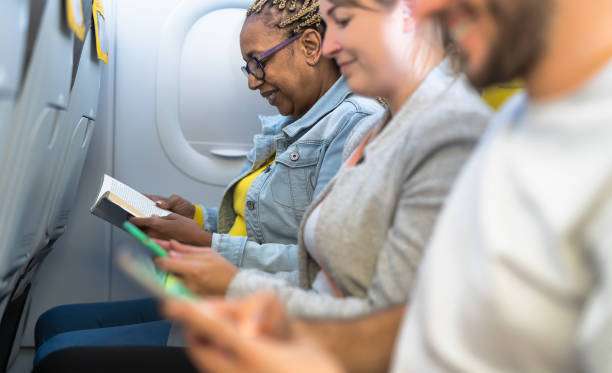Moving to another country can be both exciting and daunting, especially as an American venturing beyond the borders of the United States. Whether you’re seeking adventure, career opportunities, or a change of scenery, relocating abroad requires careful planning and an open mind. In this guide, we’ll cover everything you need to know to make your move as smooth as possible—from planning and preparation to settling into your new home.
Why Move Abroad?
Relocating to a new country is a major life decision that involves significant planning and introspection. Understanding your motivations for moving is crucial, as it will help shape your expectations and guide your decisions throughout the process. Here are some of the most common reasons why Americans choose to move abroad:
- Career Opportunities: For many, the move is driven by professional reasons. Whether it’s a job transfer, a new position, or an opportunity to work in a niche industry, many countries offer unique job markets and career advancement possibilities that might not be available in the U.S. For example, tech professionals might move to countries like Germany or Japan, while educators may find lucrative positions in the Middle East or Asia.
- Educational Pursuits: Attending university abroad can provide an enriching educational experience. Countries like the UK, Canada, and Australia are known for their prestigious universities and diverse student populations. Studying abroad also offers the chance to learn a new language and understand a different culture deeply, providing a competitive edge in the global job market.
- Quality of Life: Some Americans seek a different lifestyle, whether it’s a slower pace in a Mediterranean country, a focus on work-life balance in Scandinavian nations, or a warmer climate in Southeast Asia. Many expats are drawn to countries with a lower cost of living, affordable healthcare, and high quality of life, such as Portugal, Thailand, or Mexico.
- Retirement: For retirees, moving abroad can be an opportunity to enjoy a higher standard of living on a fixed income. Countries like Costa Rica, Portugal, and Ecuador offer beautiful landscapes, good healthcare, and affordable living costs, making them popular choices for American retirees.
- Adventure and Cultural Immersion: Moving abroad allows for a deep dive into a new culture, language, and way of life. The chance to explore historical sites, enjoy diverse cuisines, and engage with new communities is a significant draw for many.
Choosing the Right Country for You
Selecting the best country to move to is a decision that requires careful consideration of several factors, each of which will affect your experience:
- Language: Language can be a significant barrier or an exciting challenge, depending on your perspective. If you’re moving to a non-English-speaking country, assess your willingness to learn a new language. Some countries, like the Netherlands or Scandinavian countries, have high English proficiency, making the transition smoother.
- Cost of Living: The cost of living varies widely across countries and even within cities. Websites like Numbeo provide comparative data on living costs, including rent, groceries, dining out, and transportation. Create a realistic budget that considers these costs alongside your current income or savings.
- Quality of Life: Research the healthcare system, safety, infrastructure, climate, education, and other factors that contribute to a country’s overall quality of life. Consider what aspects are most important to you—whether it’s a robust healthcare system, personal safety, or a vibrant cultural scene.
- Work Opportunities: If you’re planning to work, research the job market in your field. Some countries have more opportunities in specific sectors. For example, Singapore is known for finance and tech, while Germany is a hub for engineering and manufacturing.
- Visa and Residency Requirements: Each country has its own set of rules for long-term residency. Research the different types of visas available (work, student, spousal, retirement, etc.) and their requirements. Some countries offer special visas for digital nomads or entrepreneurs.
Planning Your Move
Proper planning can make your transition abroad much smoother. Here’s how to get started:
- In-Depth Research: Invest time in understanding the cultural norms, lifestyle, and legal requirements of your new country. This includes everyday customs, like tipping etiquette and local dress codes, as well as broader societal norms. For instance, understanding the punctuality expected in Germany or the importance of greetings in Japan can help you integrate more seamlessly.
- Exploratory Visit: If possible, plan a preliminary visit to your prospective new home. This allows you to get a sense of the neighborhoods, meet potential employers or colleagues, and experience the local culture firsthand. Use this trip to connect with local expat communities, which can provide invaluable insights and support.
- Budget Planning: Moving abroad can be costly, so it’s essential to budget carefully. Include expenses like visa fees, flights, temporary accommodation, shipping or storage of personal belongings, and initial setup costs in your new home. Also, factor in a buffer for unexpected expenses, such as emergency travel or unexpected fees.
- Health Insurance and Healthcare: Many countries require proof of health insurance as part of the visa process. Research whether your existing health insurance covers international healthcare, or whether you need to purchase a new plan. Investigate local healthcare options and consider both public and private insurance.
Navigating Visa and Legal Requirements
Visa and residency requirements can be complex, but understanding them is crucial to avoid legal issues:
- Types of Visas: Identify the visa type that aligns with your reason for moving. Work visas often require a job offer from a local employer, while student visas require acceptance into a recognized educational institution. Retirement visas may require proof of income or savings, and digital nomad visas may require proof of remote work and financial stability.
- Application Process: Start the application process well in advance. Gather all required documents, which may include your passport, financial statements, health records, criminal background checks, and proof of employment or acceptance. Some visas also require you to undergo a health examination or provide translations of documents.
- Legal Residency and Work Permits: Understand the conditions tied to your visa. For example, a student visa might limit the number of hours you can work, while a work visa might be tied to a specific employer. Research how to extend your visa or transition to permanent residency if you plan to stay long-term.
Preparing for the Move
Once your visa is secured, it’s time to start preparing for the physical move:
- Downsize and Organize: Begin by decluttering your home. Decide what to bring, sell, donate, or store. Shipping costs can be high, so consider what you truly need and what can be replaced once you arrive. Selling unnecessary items can also help offset moving costs.
- Arrange Housing: Research housing options in advance, especially if you’re moving to a high-demand city. Temporary accommodations, such as short-term rentals or serviced apartments, provide flexibility while you search for a permanent home. Consider proximity to work, schools, public transport, and amenities when choosing a neighborhood.
- Banking and Financial Management: Setting up a local bank account will make it easier to manage daily expenses and pay bills. Research banks that are expat-friendly and offer international services. Consider maintaining a U.S. account for some time to facilitate money transfers and handle U.S.-based expenses.
- Staying Connected: Choose an international phone plan or switch to a local provider once you arrive. Apps like WhatsApp, Signal, and Skype can help you stay in touch with friends and family without incurring high costs. If you’re working remotely, ensure you have a reliable internet connection in your new home.
Settling In: Adapting to Your New Environment
Arriving in a new country is both exciting and challenging. Here’s how to make the transition smoother:
- Learn the Local Language: Even a basic understanding of the local language can help immensely with daily interactions and integration. Take language classes or use language learning apps to start building your skills. Engaging in language exchange meetups or hiring a tutor can also accelerate your learning.
- Understand Local Culture and Etiquette: Learn about cultural norms, social etiquette, and unspoken rules. Understanding local customs can help you avoid misunderstandings and build better relationships with locals. For instance, understanding the concept of “saving face” in Asian cultures or the importance of punctuality in German-speaking countries can greatly enhance your integration.
- Build a Support Network: Joining local clubs, expat groups, or online communities can help you make friends and build a support network. Attend local events, join hobby groups, or participate in community activities to meet both locals and other expats. Building connections will help you feel less isolated and more at home.
- Healthcare Registration: Register with local healthcare services as soon as possible. Learn how to access doctors, specialists, and hospitals. Familiarize yourself with the emergency services number and the location of the nearest hospital or clinic.
Employment and Income Strategies
Securing employment or establishing a source of income is critical for your financial stability abroad:
- Remote Work Considerations: If you’re working remotely for a U.S. employer, ensure they are aware of your move and that you comply with both U.S. and local labor laws. Understand any tax implications and seek advice if necessary. Tools like VPNs can ensure secure work environments if your work involves sensitive information.
- Finding Local Employment: Start job hunting before you move. Tailor your resume and cover letter to local standards, which may differ significantly from U.S. practices. Networking is key—join local professional organizations or attend industry events to meet potential employers.
- Freelancing or Starting a Business: Research the legal requirements for freelancing or setting up a business in your new country. This may involve registering your business, obtaining a tax number, and understanding local regulations on self-employment.
Managing Taxes and Legal Obligations
Taxes can be one of the most complicated aspects of moving abroad. Here’s what you need to know:
- Understanding Tax Obligations: As an American abroad, you are still required to file a U.S. tax return annually, regardless of where you live. You may also be liable for local taxes in your new country. The Foreign Earned Income Exclusion (FEIE) and Foreign Tax Credit (FTC) can help reduce your U.S. tax burden, but navigating these options can be complex.
- Hire a Tax Professional: Consider hiring a tax professional who specializes in expat taxes. They can help you understand your obligations in both countries, ensure you file correctly, and help minimize your tax liability. Look for professionals with experience in both U.S. and local tax law.
- Banking and Foreign Account Reporting: If you have foreign bank accounts, be aware of the Foreign Account Tax Compliance Act (FATCA) and the requirement to file an FBAR (Foreign Bank Account Report) if your accounts exceed a certain threshold. Non-compliance can result in hefty fines.
Maintaining Connections Back Home
Keeping in touch with family and friends back home is crucial for emotional well-being:
- Communication Tools: Utilize technology to stay connected. Regular video calls via Zoom, WhatsApp, or FaceTime can help maintain close relationships. Set up a schedule that accounts for time zone differences to ensure regular contact.
- Visits and Travel: Plan trips back to the U.S. to visit family and friends. Factor in time off from work and budget for travel expenses. Some expats schedule yearly trips home or use their vacation time strategically to stay connected.
- Postal Services and Voting: Set up mail forwarding or use a mail scanning service to keep track of important documents. Remember to register as an overseas voter so you can participate in U.S. elections. The Federal Voting Assistance Program (FVAP) provides resources for absentee voting.
Embracing the Expat Experience
Living abroad is a unique opportunity to experience a new culture, grow personally, and gain a global perspective. Embrace the journey by:
- Staying Open-Minded: Be prepared for culture shock and moments of frustration. Keep an open mind and be flexible. View each challenge as an opportunity to learn and grow.
- Travel Locally: Take advantage of your new location to explore neighboring cities and countries. Traveling within your new region can provide deeper cultural insights and help you feel more connected to your new home.
- Document Your Journey: Keep a journal, blog, or vlog to document your experiences. Not only does this create a personal keepsake, but it can also help you process your emotions and share your journey with others.
Final Thoughts
Moving to another country as an American is a significant life change that comes with both challenges and rewards. By preparing thoroughly, staying open to new experiences, and seeking support from communities both at home and abroad, you can navigate this exciting journey with confidence and create a fulfilling new life overseas. Remember, every expat journey is unique, and the lessons you learn along the way will shape your experience and enrich your life in countless ways.






